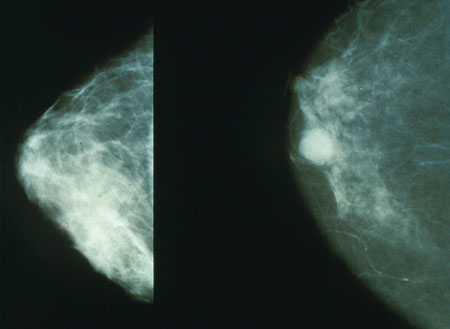
Boehringer Ingelheim has reported positive results from two trials evaluating afatinib in the treatment of patients with breast cancer.
The Phase III LUX-Breast 1 trial compared afatinib plus vinorelbine (experimental arm) with trastuzumab plus vinorelbine in patients with HER2-positive metastatic breast cancer after failure of prior trastuzumab-based therapy.

Discover B2B Marketing That Performs
Combine business intelligence and editorial excellence to reach engaged professionals across 36 leading media platforms.
The trial showed similar progression-free survival and objective response in both treatment arms, but shorter overall survival in the experimental arm.
Diarrhoea, neutropenia and rash were the most common adverse events observed with afatinib plus vinorelbine, while neutropenia, leukopenia and anaemia were reported with trastuzumab plus vinorelbine.
The company said that the combination of afatinib plus vinorelbine was less tolerable with a higher rate of dose reductions and treatment discontinuations compared to trastuzumab plus vinorelbine.
Patient enrolment in the trial was closed in April 2013, following the recommendation of the independent Data Monitoring Committee (DMC).

US Tariffs are shifting - will you react or anticipate?
Don’t let policy changes catch you off guard. Stay proactive with real-time data and expert analysis.
By GlobalDataBased on the results, the company discontinued recruitment into all trials investigating afatinib plus vinorelbine in HER2-positive metastatic breast cancer.
LUX-Breast 3 is a randomised, open-label Phase II trial in patients with HER2-positive breast cancer progressing with brain metastases.
The three-armed trial compared afatinib, afatinib plus vinorelbine and investigator’s choice of therapy, after prior trastuzumab and/or lapatinib-based therapy.
Results from LUX-Breast 3, showed no benefit for afatinib-containing regimens over treatments selected by the physician as measured by the primary endpoint of patient benefit at 12 weeks and secondary endpoints including progression-free survival and overall survival.
The results from these two trials were presented at the 2014 San Antonio Breast Cancer Symposium (SABCS).
In the EU, Japan, Taiwan and Canada afatinib is approved under the brand name GIOTRIF, while in the US it is approved under the brand name GILOTRIF for use in patients with distinct types of EGFR mutation-positive non-small cell lung cancer (NSCLC).
The approval of afatinib to treat distinct types of EGFR mutation-positive NSCLC was based on the results of LUX-Lung 3 trial, which is part of the LUX-Lung clinical trial programme.
The trial met its primary end point of progression-free survival and showed that afatinib significantly delayed tumour growth when compared to standard chemotherapy.
Image: Mammograms showing a normal breast (left) and a cancerous breast (right). Photo: courtesy of Morning2k.





